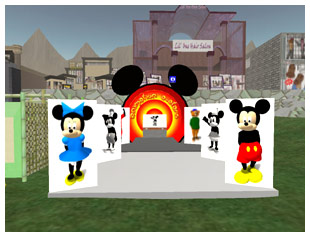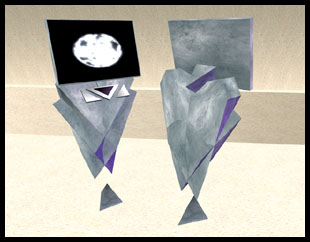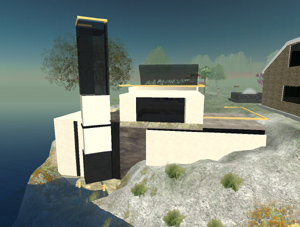
Wired is carrying an update of sorts on the problem of orphaned copyrighted work. If companies like IBM are tearing down the walls to let some light in to spur overall growth and opportunity, I have to wonder what’s going on inside the barricades at places like Disney (both the buildings and the mental erections). Speaking of which, I happened across an interesting place in the Second Life simulation: a vendor selling Disney items on the island of Erotica (no kidding). Now that puts an interesting spin on the label “Magic kingdom”.




